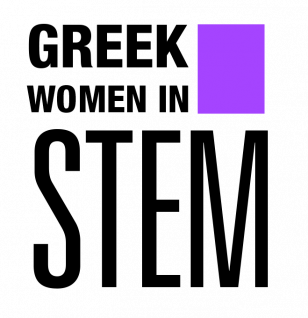2020 had many good moments for science! Below you will find a small sample of papers published last year by Greek women scientists.
Medicine: Dr. Nefeli Zacharopoulou, and her colleagues published the article “The histone demethylase KDM2B activates FAK and PI3K that control tumor cell motility“. They studied the effect of the KDM2B gene on the activation of focal adhesion kinase (FAK), and its involvement in regulating the motility of cancer cells. The results revealed a new functional role of the gene in the regulation of kinase signaling activation in prostate cancer cells. Μore about Dr. Zacharopoulou here.
Geology: The professor of seismology Dr. Anastasia Kyratzi – the only woman in a group of ten people – published the article: “A deformation study of Anthemountas graben (northern Greece) based on in situ data and new InSAR results“. The study focuses on the basin of the Anthemountas river in the wider metropolitan city of Thessaloniki, where landslides had previously been identified. The team presented new surface displacement results from the ENVISAR satellite and others for the period 1992-2010. The results show an increasingly distorted environment in both decades, with increasing size, and researchers conclude that a water management plan should be a high priority for the region. More about Dr. Kyratzi here.
Environmental Engineering: Maria – Margarita Bertsiou, PhD candidate at the National Technical University of Athens, and her collaborators published the article entitled “Multi‐criteria analysis and Geographic Information Systems methods for wind turbine siting in a North Aegean island“. The small and remote islands of the Aegean need energy independence, thus making it necessary to explore renewable energy sources. The rich wind potential of the Greek islands offers the solution to this problem; however, it is necessary to choose the optimal location for the installation of wind turbines. This research aims to propose these sites based on a set of geomorphological, technical and spatial criteria, taking into account environmental constraints and the applicable legal framework. More about M. Bertsiou here.
Chemistry: PhD candidate Anastasia Louka – together with a group of five researchers – published the article: “Diethylsilane as a Powerful Reagent in Au Nanoparticle-Catalyzed Reductive Transformations“. Diethylsilane (Et2SiH2) is one of the readily available dihydrosilanes, which exhibits superior reactivity, compared to monohydrosilanes, in a number of reductive transformations catalyzed by recyclable and reusable gold nanoparticles (1 mol-%). It reduces aldehydes or ketones almost instantaneously and can be used in a faster reductive amination process. The researchers also showed a new method for synthesizing N-arylisoindolines with a much faster transformation than older gold catalysis protocols. More about Anastasia Louka here.
Mathematics: Dr. Evangelia Kalligiannaki is a postdoctoral researcher at the Institute of Applied and Computational Mathematics in Crete. This year she published one of her studies entitled “Systematic coarse-grained models for molecular systems using entropy“. There are a number of different methods for optimally parametrized coarse-grained models. The authors focus on methods based on information theory, such as relative entropy. Various methodologies are compared and how they can be applied in molecular systems such as: a simple liquid (methane), water and a polymer system (polyethylene) is being analyzed. Finally, for the latter they provide reliable confidence intervals using a sampling analysis technique, the bootstrap method. More about Dr. Kalligiannaki here.
Informatics: Postdoctoral researcher Dr. Styliani Avramidou, published her study on “Circular Economy – A Challenge and an Opportunity for Processing Systems Engineering“. The article by Dr. Avramidou addresses the challenges and recognizes the opportunities provided by research in mechanical process systems and its assistance in understanding, analyzing and optimizing supply chains. Population growth is pushing for more natural resources. At the same time, manufacturing companies are being called upon to reduce the waste generated throughout the product supply chain, which has huge environmental and economic implications. One way to reduce these effects is through the circular economy (CE). The CE is a process that helps resolve resource, waste and gas issues. An example of CE comes from the coffee supply chain analyzed in the study. This demonstrates a supply chain “from production to consumption” which is renewable and environmentally friendly. More about Dr. Avramidou here.
Biology: Postdoctoral researcher Anastasia Dimitriadi published the research entitled “3D heart morphological changes in response to developmental temperature in zebrafish: More than ventricle roundness”. In this research, Dr. Dimitriadi and her colleagues used an innovative method of three-dimensional analysis. The role of temperature fluctuations in the morphology of the heart of Zebrafish fish in early developmental stages was also studied. This research strengthens the evidence for the effects of global warming and seasonal temperature changes on the growth and survival of many fish species. More about Dr. Dimitriadi here.
Chemical Engineering: Dr. Stamatina Vougiouka is a professor at the Department of Chemical Engineering of the National Technical University of Athens and director of studies at the Laboratory of Polymer Technology. The research “Epoxy loaded poly (urea-formaldehyde) microcapsules via in situ polymerization designed for self-healing coatings” by Sofia Tzavidi, supervised by Dr. Vougiouka was published in 2020. Self-healing coatings are a next generation technology that can offer autonomous crack repair and increase the life of a protective coating on buildings. Thus, it analyzes how polymeric microcapsules containing “therapeutic” agents can be used in practice. The basic parameter is the encapsulation of epoxy resin in microcapsules proposed as the main mechanism of building reinforcement. More about Dr. Vougiouka here.

Greek Women in Stem
RELATED ARTICLES
CONTACT US
____________
greekwomeninstem@gmail.com
Do you have ideas, questions, comments or special requests?
Would you like to highlight your research project or nominate a researcher that you would like to learn more about?
Please write to our email or fill out the form and hit “send”. We will be happy to talk with you!
[contact-form-7 id=”44″ title=”Contact form 1″]
